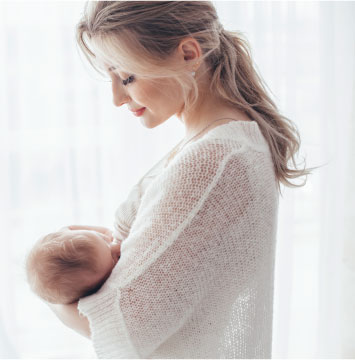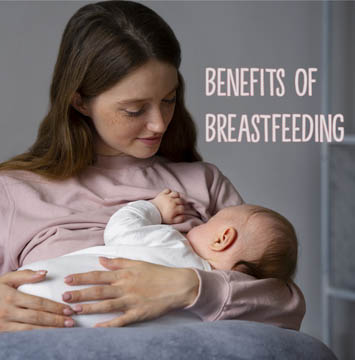Breastfeeding benefits
Breastfeeding is the most effective method for nurturing strong and healthy babies. That is because breast milk invincibly boosts the immune system, provides unmatched nutrients, is easily digestible, and facilitates the emotional bonding between a mother and her newborn baby.
Is it an easy process, though? Does it come naturally to every mother out there? Here is where it gets tricky!
Tons of mothers, particularly new ones, battle with anxiety and depression due to the stress of the breastfeeding process. They tend to get infuriated by how demanding and complex it might get, add to that the burden of direct peer pressure.
In this article, we will tackle some of those circulating concerns of new or existing mothers:
Is it normal for my breasts to hurt during breastfeeding?
It is absolutely normal to feel some discomfort at the very early stages of breastfeeding, but it shouldn’t hurt. Pain may be due to “Improper Latching” or “Breast Engorgement”.
For proper latching, place your baby’s tongue under the nipple and as much of the areola (the dark ring around your nipple) in the baby’s mouth.
For relief from breast engorgement, apply a warm towel or an ice pack prior to feeding or simply express some milk using a breast pump. Keep in mind that this is a temporary condition and it will improve once you learn how to remove excess milk.
Is my baby getting enough breastmilk?
Majority of mothers worry about servings and the amount of milk given to the baby. It is crucial to point out here that whatever goes in will certainly come out! So, keeping track of your baby’s diapers is an excellent indicator to what the right amount should be. For example:
- During the first 24 hours post-birth: A baby must have 1-2 wet diapers and 1-2 soiled diapers.
- During days 2 & 3 post-birth: A baby must have 3-4 wet diapers and 2-3 soiled diapers.
- During days 4 & 5 and onwards: A baby must have at least 5-6 wet diapers and 3-4 soiled diapers.
Anything above or below is alarming and should be addressed as soon as possible.
How often should I breastfeed my baby?
Overfeeding can backfire as much as Underfeeding. Avoid both!
Before anything, find a quiet place to breastfeed, preferably at home, because babies can get easily distracted in crowded rooms which might irritate or bother them.
On an average, a baby should be fed every 1.5-3 hours and for 10-15 minutes on each breast. Warning: Don’t forget to burp your baby after each feeding to prevent an upset stomach.
For safe and smooth breastfeeding, try not to exceed those recommended timeframes.
Breastfeeding brings comfort to your child
Babies can never be spoiled, but as a matter of fact they are born with a need to be loved, comforted, fed and held. So, please don’t deprive them of that. Always attend to your babies’ needs to gain their full trust.
Breastfeeding is not an easy process, but definitely worth all the efforts.






